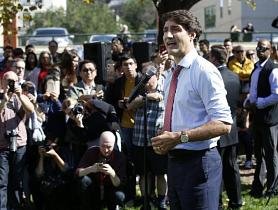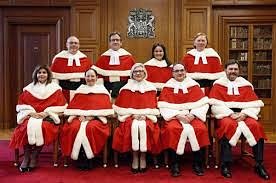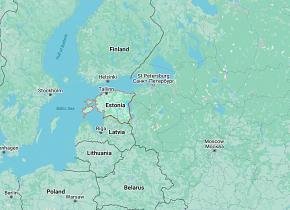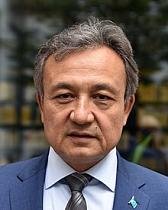Justin Trudeau Blackface Scandal: Canada Must Confront Its Race Problem
The subject of racism, recently reared its ugly head in Canada’s Federal Elections when it was revealed that Prime Minister Justin Trudeau performed wore Blackface, a couple of years ago.
Not only are citizens out there, painting their faces black as a way to have fun, but other forms of racism, such as hate crimes also make up a part of the crimes reported annually in Canada.
According to a report on Calgary Sun, this summer, Statistics Canada revealed that reports of hate crimes finally dropped off a little after years of increases, with 1,798 incidents logged.
“Even with this decline, the number of hate crimes remains higher (with the exception of 2017) than any other year since 2009, and aligns with the upward trend observed since 2014,†the agency found.
Even though statistics report that the number of hate crimes is wearing off, it is important to bear in mind that a lot of spontaneous expressions of hatred happen every day, where the victims fail to make an official report. There are also prejudiced flare-ups too minor to be called a hate crime.
Ricky Leong writing for the Calgary Sun recounts a glaring expression of racism that happened while he was commuting on the LRT a few years ago.
“Between stops, a woman began addressing the visible minorities in our car and angrily yelled nasty things about our appearance and where we should go. A few brave souls tried to engage with her but she would not be deterred … until bylaw officers came to throw her off the train.â€
However, Leong believes that there are worse forms of racism than such glaring expressions of racism recounted above. The worse forms of racism are those racist acts intentionally or not, sanctioned by the very institutions meant to prevent discrimination, such as Trudeau’s Blackface.
Blackface is a racist practice, rooted in intense anti-Black motivations, even though those who commit it and enjoy it may or may not realize this. It is time to stop arguing over the fact that Trudeau may have been ignorant of the implications when he chose to wear blackface and instead try to find out the deeply entrenched racial logics that drive blackface and the damaging impacts of the practice on Black people.
The society must also investigate why certain people insist on practising blackface, even though Black communities have always complained about it.
Philip S. S. Howard, assistant professor of education at McGill University writing for The Conversation suggests a few reasons why issues such as blackface still pop up occasionally, in today’s society.
First, he blames it on widespread anti-Blackness in Canada, “This anti-Blackness is also systemic. That’s why it occurs so often in institutional settings. For example, it recurs in educational settings, as it did with Trudeau. It recurs among police officers.
Where anti-Blackness is not expressed as wanton violence against Black people, it is often expressed as a complete disregard for the histories, the lives and the voices of Black people.â€
Howard insists that the appropriate response to Trudeau’s blackface would be for all leaders who aspire to be elected into public office, to make sure that their campaign platforms are committed to naming and disrupting institutional anti-Blackness.
Comments
There are 0 comments on this post














